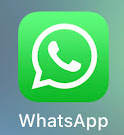Over the last 20 years, people have adapted to conversing online. You can send messages to anybody anywhere and anytime, and they in turn can message back in real time or when they are free. With the Covid-19 outbreak this has become even more common. Distributed families in even in the same cities haven't seen each other for months, and instead use web and mobile applications to keep in touch.
There has been one aspect that has been continuously evolving - security. Initially the internet was designed as an open protocol, made more for sharing and referencing information, rather than locking it down. However as people's digital signature became larger and they share more details about themselves, the aspect of control has been evolving. Some of the early internet companies (yes I'm considering you - Google and Facebook) based their entire business model on ads with the exploitation of individual data, thus distorting the ethical fabric of the internet. As I wrote in a previous blog 7 years ago, any centralised accumulation of user data becomes a target for other agencies, mostly unethical.
Notably, companies like Apple have realised this and pivoted towards enabling individual control of their data. It probably helps that their business model does not depend on selling your data. There are many aspects to modern tech usage that need to be re-engineered towards a more private and secure model.
In the end, if you were to whisper something into someone's ear, you don't intend that to be available openly on the internet - forever. Digital reputations are something not easily reset.
What brings me back to this topic, is a WhatsApp application terms-of-reference update that stipulates that users are now required to share their data with the parent company Facebook. If one has been following Facebook over the years, then one can see they originate from a hacker mentality and culture - "better to seek forgiveness later, than ask permission". Thus their aim has been to exploit all data at their disposal to advance themselves competitively and financially, at the expense of a moral compass. It is funny to see former employees of Facebook, now becoming older, coming out and being apologetic and advising caution in using Facebook. On the other hand online users have been happy to give away their privacy in exchange for ease of use and dopamine driven programming.Starting in Feb, WhatsApp will begin sharing all kinds of data with Facebook. They just killed their best feature - privacy.
— Chamath Palihapitiya (@chamath) January 10, 2021
Please no longer text me on WhatsApp. Download @signalapp
WhatsApp's founders intended for it to be an ad-free completely privacy-driven messaging service. Most of us in Information Tech sector knew that was over once Facebook bought WhatsApp. Somehow WhatsApp's founders fooled themselves that their original intentions for the application would be maintained. I'm sure the enormous pay-out they received helped cement the illusion.
In my globally distributed family, we have been big users of WhatsApp, but now I'm advocating for everyone to shift to something else. It can be hard to do. Not everyone is tech-savvy, and once they have overcome the learning curve of one application, most are reluctant to switch.
There are more evolved privacy-conscious messenger candidates out there. The one I'm switching to at the moment and advocating is Signal. It cannot be purchased by another big player. It is secure, open-source, and end-to-end encrypted. It is also endorsed by most of the smart players - Edward Snowden, Jack Dorsey, Elon Musk among others. A more detailed look is provided in the following video:
Here's how to set it up on Android:
And how to set it up on Apple:
* * *


No comments:
Post a Comment